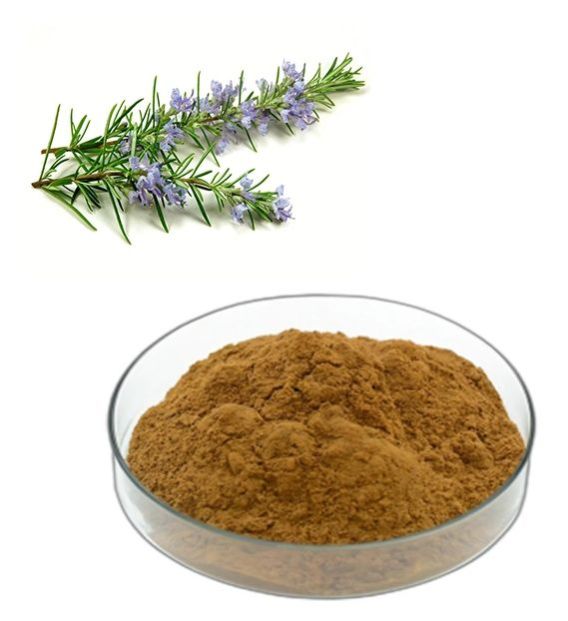With the arrival of the contemporary era of pet medicine is a call for natural and effective medications for prevalent diseases-such as inflammation and obesity. One of the new emerging natural ingredients vets and pet owners are discovering is ursolic acid powder. Derived from various plants and herbs, it possesses multiple health benefits, more importantly its anti-inflammatory and anti-obesity qualities. But can it actually assist with inflammation and obesity in our dog and cat friends? Let us take a look at what the science dictates.

What is Ursolic Acid?
Ursolic acid is a natural pentacyclic triterpenoid found in apple peels, rosemary, thyme, basil, and other herbs. It has been extensively researched for its advantages to human beings ranging from antioxidants, anti-inflammatory, to metabolic-and now the same advantages are being explored with companion animals as well.

The Problem of Inflammation and Obesity in Companion Animals
Inflammation in Companion Animals
Inflammation is an appropriate immune response that enables the body to recover from injury or infection. Chronic inflammation-such as inflammation related to arthritis, skin hypersensitivity, and certain gastrointestinal diseases-can be a disease of clinical significance, though. Inflammation will most commonly result in pain, decreased activity, and decreased quality of life for companion animals.
Obesity in Companion Animals
Overweight and obesity in dogs and cats are also increasing. The Association for Pet Obesity Prevention has approximated that more than 55% of cats and dogs in the United States are obese or overweight. Overweight and obesity also lead to a range of diseases such as arthritis, diabetes, cardiovascular disease, and shorter lifespan.

How Ursolic Acid May Help to Manage Pets' Inflammation
Anti-inflammatory activities of ursolic acid have been established by various studies to have the capacity to modulate major inflammatory pathways:
Inhibits NF-κB and COX-2
Nuclear factor-kappa B (NF-κB) and cyclooxygenase-2 (COX-2) are inflammatory mediator generators both implicated in inflammatory processes and can be inhibited by ursolic acid (Yin et al., 2012). Inhibition of these pathways by ursolic acid prevents pro-inflammatory cytokine production.
Reduces Oxidative Stress
Oxidative stress normally results from chronic inflammation. Antioxidant activity of ursolic acid inhibits free radicals, which also decrease cell damage and inflammation.
Potential Pet Benefits:
- Alleviation of arthritis and arthritic pain
- Improved mobility in aging pets
- Decreased itching and inflammation of dermatologic allergies
- Repression of chronic inflammatory disease (e.g., inflammatory bowel disease)

How Ursolic Acid May Assist with Obesity Management in Pets
Ursolic acid has been found to affect body composition and metabolism in animal models:
Stimulation of Muscle Growth
Ursolic acid may stimulate the IGF-1 pathway to trigger muscle growth (Kunkel et al., 2011). This helps to preserve lean body mass, which is essential in mobility and metabolism.
Fat Accumulation Inhibition
Through research on rodents, ursolic acid supplementation has been reported to suppress fat accumulation and improve insulin sensitivity (Kunkel et al., 2011).
Stimulation of Energy Expenditure
Ursolic acid also has the ability to induce brown adipose tissue (BAT) development, which is used for energy and weight maintenance.
Possible Pests Benefits:
- Supports weight of obese animals
- Supports metabolic process
- Sustains lean muscular mass while reducing weight
- Averts diseases caused by obesity such as diabetes and arthritis

Is Ursolic Acid Safe for Dogs and Cats?
Though there is ongoing research in the field of companion animals, ursolic acid is safe if taken at the correct dose. Extrapolating from animal studies and veterinary clinical experience:
- Canines: 5–10 mg per kilogram body weight daily
- Felines: 3–5 mg per kilogram body weight daily
It is best to begin at the lower dose and gradually raise it while observing for side effects, if any, like slight disturbance in the stomach. Consult your veterinarian prior to adding any supplement to your pet's diet.

Application of Ursolic Acid Powder on Pets
The ursolic acid powder may be added to the food of your pet or used on home-made snacks. Some guidelines on how to use it to the best advantage are as follows:
- Begin low and titrate upward as necessary.
- Be cautious: Pay attention to any evidence of digestive disturbance or hypersensitivity response.
- Regularity: Every day daily utilization is typically necessary in order to get results over a long period of time.
- Synergy: Ursolic acid can be used along with other supplements such as omega-3 fatty acids or joint support supplements for overall health effect.

Key Things to Remember
- While ursolic acid does have much potential to prevent inflammation and obesity in your pets, it's not a magic pill. Consider these points:
- Whole-Way Approach: Diet, exercise, and vet check-ups are still the foundation of pet health. Ursolic acid needs to be part of an overall wellness routine.
- Special Needs: Each animal is different. Some will take more than others based on breed, age, health, and lifestyle.
- Vet Guidelines: Please consult your veterinarian before adding new supplements, particularly if your pet is on medication or has pre-existing illness.

Conclusion
Ursolic acid powder is a natural, non-invasive solution to relief in cats and dogs from inflammation and obesity. With its anti-inflammatory, antioxidant, and metabolic effects, it is one such solution pet parents would be eager to employ in keeping their pet's health naturally under control.
From arthritis and allergy relief to weight control and enhanced metabolism, ursolic acid can enhance your pet's wellness routine. But use it responsibly, considering dosages and asking your vet for best results.
References
Kunkel, S. D., Suneja, M., Ebert, S. M., Bongers, K. S., Fox, D. K., Malmberg, S. E.,. & Adams, C. M. (2011). Ursolic acid increases skeletal muscle and brown fat and decreases diet-induced obesity, glucose intolerance, and fatty liver disease. PLoS ONE, 6(6), e20666.
Yin, M. C., Lin, C. C., & Wu, H. C. (2012). Antioxidative and anti-inflammatory effects of ursolic acid on mice with liver injury. Journal of Agricultural and Food Chemistry, 60(4), 689–694.
Liu, J. (1995). Pharmacology of oleanolic acid and ursolic acid. Journal of Ethnopharmacology, 49(2), 57–68.










